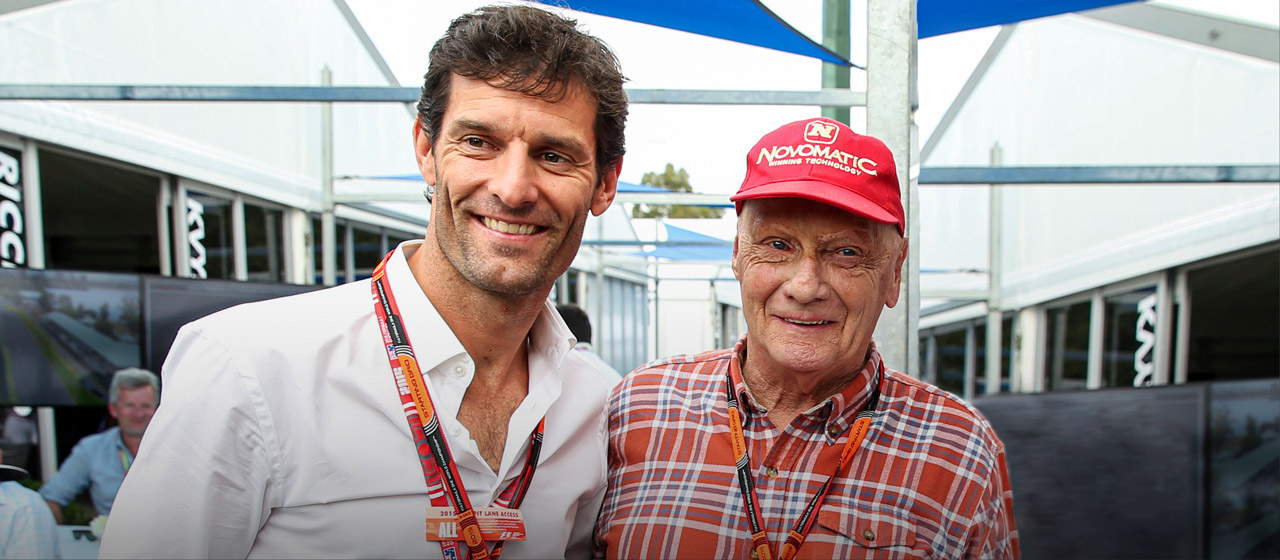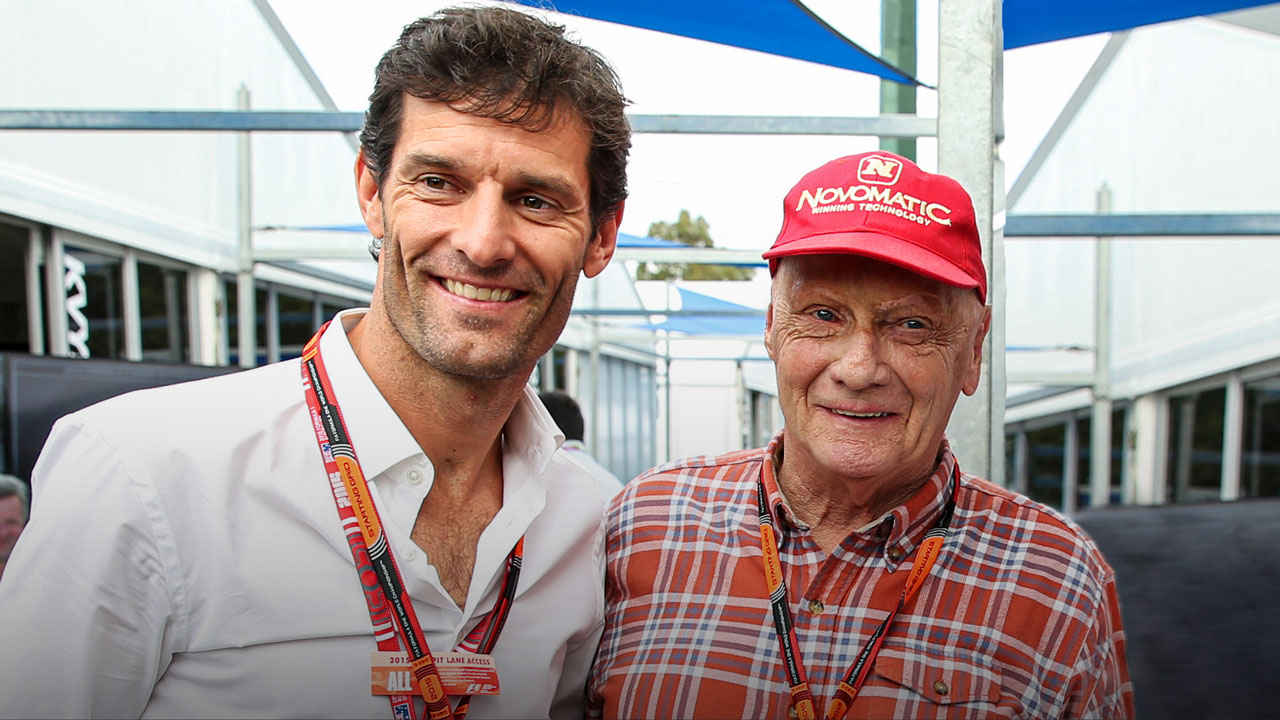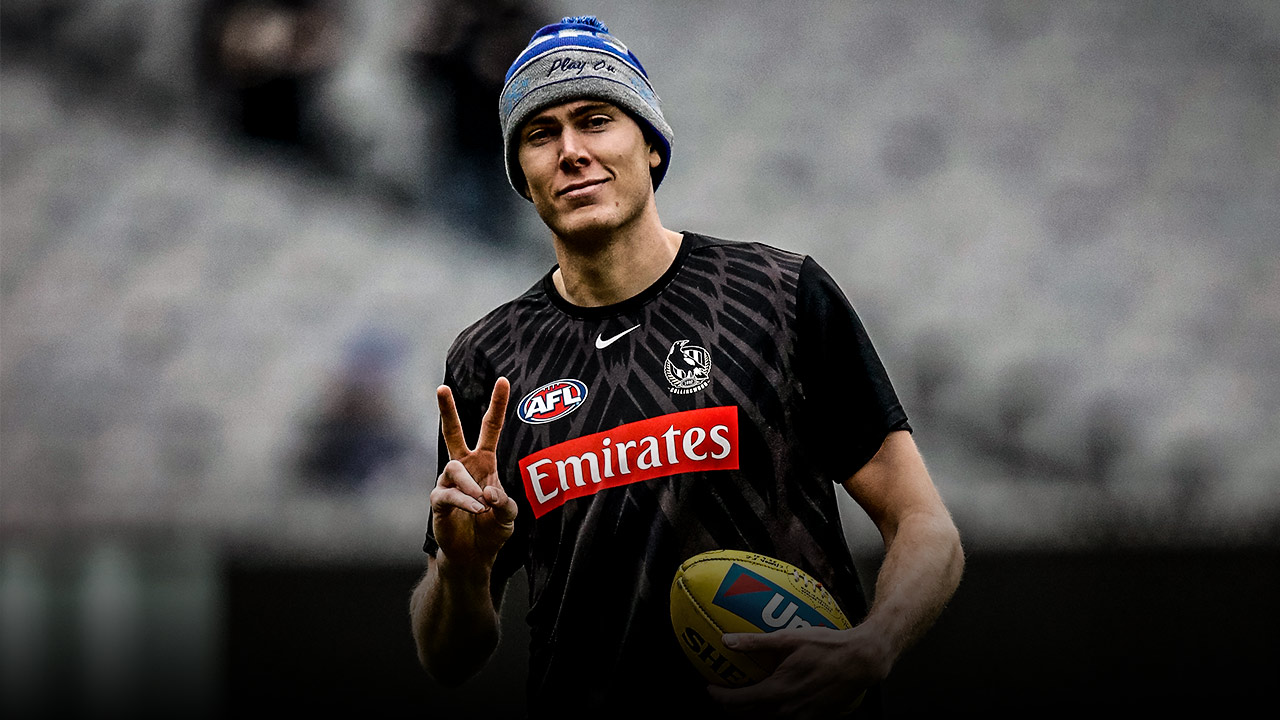Motorsport
Talking to Niki about that crash
I spoke to Niki last year around Barcelona time, which is around May, and he said that he’d like me to travel with him on his plane to the Singapore Grand Prix.
I was going to drive to Vienna and meet him there and we were going to fly together on his jet.
Not many people were offered such a privilege, to fly with Niki. I knew he didn’t throw those sorts of offers around lightly. For me, it was going to be a real highlight, something I was so looking forward to.
Every time I saw him in the F1 Paddock afterwards, he’d say, ‘Yes, we’re on!’ And, Niki’s word was rock solid. You didn’t have to second-guess him.
Maybe I would have been up on the flight deck, spending time with him, chatting on a long flight. Unfortunately, we didn’t get to do that, as he had become unwell. But, just the fact he made that offer will be something I’ll always cherish.
My father put me on a good path. Apart from him, it was Sir Jackie Stewart and Niki Lauda who had the biggest impact on me.
With Niki, often it wasn’t specific pieces of advice or mentorship, it was more the example he set, of bravery, loyalty and humility. And, what he taught me was not really about racing, it was more about life and about business.
I met Niki for the first time in 2002, when I tested for his team in Barcelona. The following year, when he was pretty much running the Jaguar program, I got to meet him properly.
Niki wasn’t overly happy with the senior management and left soon afterwards, so we didn’t get to work together much professionally. Still, we struck up a good relationship.
I think the reason for that was because, as long as you were fair and direct with him, he sort of gravitated towards you.
That was the nature of our interactions over the years. Over time, it brought us closer and closer and, when I stopped racing, we were able to spend some proper time together.
I’d be doing work around the Paddock and we finally got the chance to sit down and have some extended chats, mostly just discussing what we were doing in our lives. It meant an enormous amount to me, knowing what he had been through in his life and what he was able to achieve.
#RIPNikiLauda
I’ll miss you mate.?
?@vladimirrys pic.twitter.com/Oy3xHAfyLB— Mark Webber (@AussieGrit) May 21, 2019
Niki was a hugely successful entrepreneur. Even while he was still an elite sportsman, he set up his aviation business on the side. He became a commercial pilot so he could captain his own airline. It’s pretty extraordinary.
People think us drivers are crazy – and Niki certainly was. Yet, it’s funny to think how many people would’ve had no idea that Niki Lauda was flying them on a commercial aircraft.
It’s that incredible sense of determination, coupled with his matter-of-fact approach, that drew me to Niki. I listened to him intently when he would explain his philosophies on business – how to come up with deals, how to close and execute those deals.
He’d often talk about how it was one thing to get a deal over the line but then, if you’re going to over-promise and under-deliver, it was of no use. I think that was a lesson not just for how to operate in the business world, but across many aspects of life.
One thing Niki often drove home with me was the importance of loyalty. He would challenge me to be a good judge of character – he told me to trust my gut instinct – and to be good to the right people.
I knew Niki was a man of great character, which is why one handshake from him, to me, was like a thousand handshakes from other men.
When he’d come to congratulate me after an event that I might have driven half-decent in, and he’d take his red hat off a little bit and shake my hand, that was massive.

He wasn’t done yet
I was having dinner last night with David Coulthard and our wives and we were discussing how and why Niki was such an important figure to so many people. His passing has been a big event.
We live in the bubble, no doubt, and Niki was one of our warriors, one of our gladiatorial buddies. Through this sport, we’re a pretty tight brotherhood in many ways and the fact he’s no longer with us leaves a huge hole. But his loss has rocked the community in a different sort of way.
Several of us have had a lot of requests from the press in our respective regions. The Danish driver, Tom Kristensen, was telling me he’s had plenty of enquiries from Denmark, DC’s been doing lots of media in the UK, I’ve been doing BBC and some stuff in Australia – and we thought, ‘Why is that?’
We came to the realisation that – personality and achievements and everything else aside – everywhere Niki went, he had that infamous accident on display. People literally could see, underneath that red cap he always wore, the result of his whole head and scalp having been burnt to a cinder.
For some, it might have been confronting or uncomfortable. But, really, it was such a powerful image of the human spirit.

Nothing was off limits when talking to Niki. It’s a bit of a gentleman’s agreement, I suppose, that you don’t talk about the actual moment of impact in a crash. But I did want to ask him what he thought of the movie Rush, which came out a few years ago and was about his accident.
I wanted to know how much of it was correct and so on, and he said he loved the movie.
It was sort of our chance to talk about the accident, about how he was pulled out of the car, that he actually stood up – an amazing display of fight or flight – and then went into a coma and was actually given his last rites by his hospital bed.
The nurse made that decision but Niki was furious about it later. He was angry that a priest had been basically sending him on his way to God. He wasn’t done yet.
I was born the same year that accident happened at Nürburgring in Germany. As I was growing up, I’d hear my dad talk about it. Then, as I started racing, I got to see that corner and came to know that track at well.
I’ve seen the kind of cars that were being raced at the time. As I became more experienced, I was able to build the scenario in my mind and imagine what happened.
Then you get to know the person himself, and that’s when it started to really hit me how powerful and significant that moment was.

Niki was very stubborn, like most top-flight sportspeople. But he was often, frustratingly, correct. It’s like he’d been here before. His strike rate of giving the right advice, making the right decisions and backing himself in certain scenarios was extraordinary.
That’s sort of what happened on that fateful day in 1976. He told everyone before the race that it shouldn’t go ahead, that the track was too dangerous with the speed of the cars by then, and that the drivers should boycott it.
But there were 120,000 punters there to see him and he was narrowly out-voted by his colleagues, so he just got on with it. He had the coconuts to take it on the chin.
It might have cost him his life. You’ve got to remember, there weren’t many sports in the 1970s like Formula 1, where they were losing so many people. This is a serious sport – you can die while competing. A lot of guys did and a lot of them were Niki’s friends.
For him to have that position before the event and then to have his accident, it’s like he foresaw it happening.
More about: Bathurst 1000 | Formula 1 | Resilience






 Load More
Load More